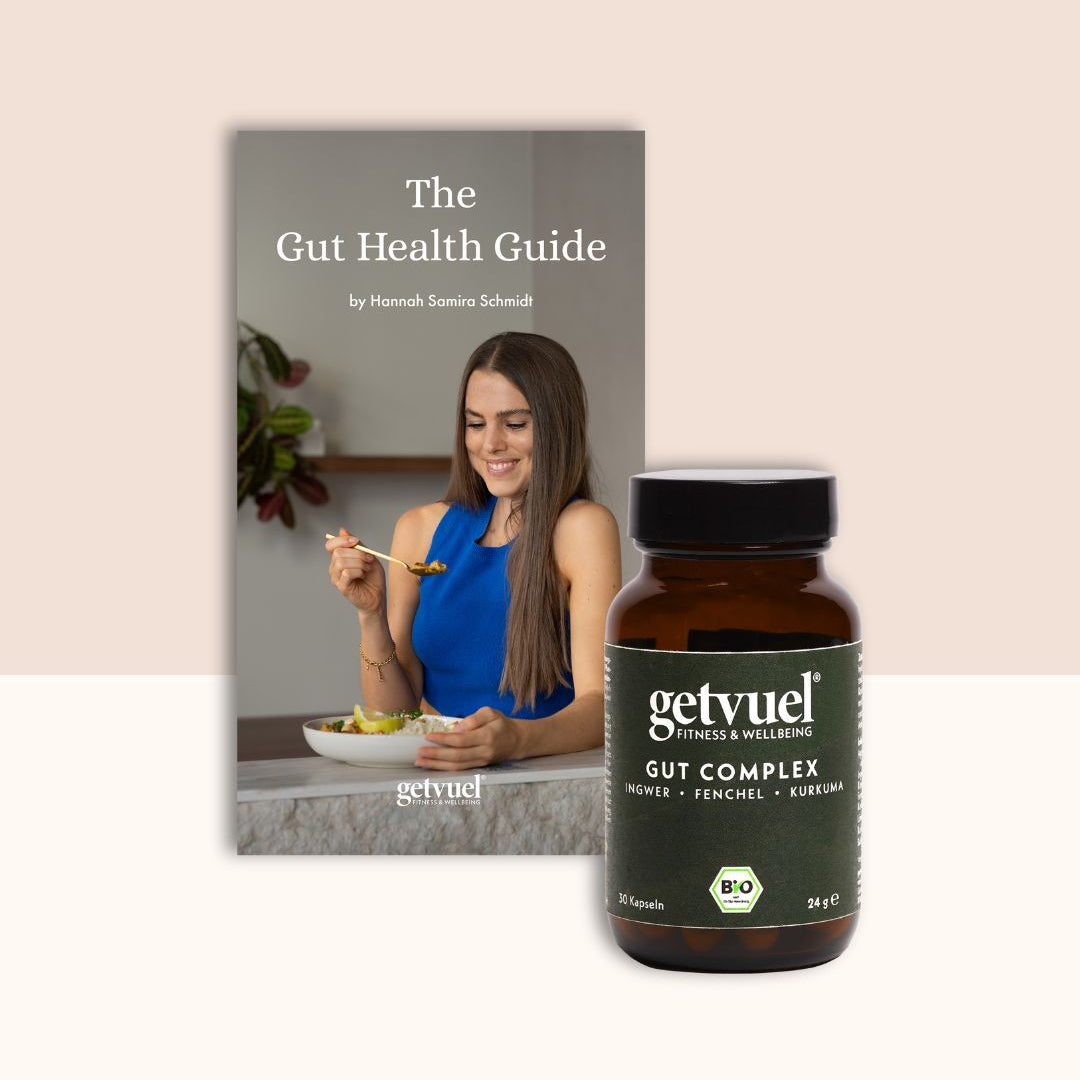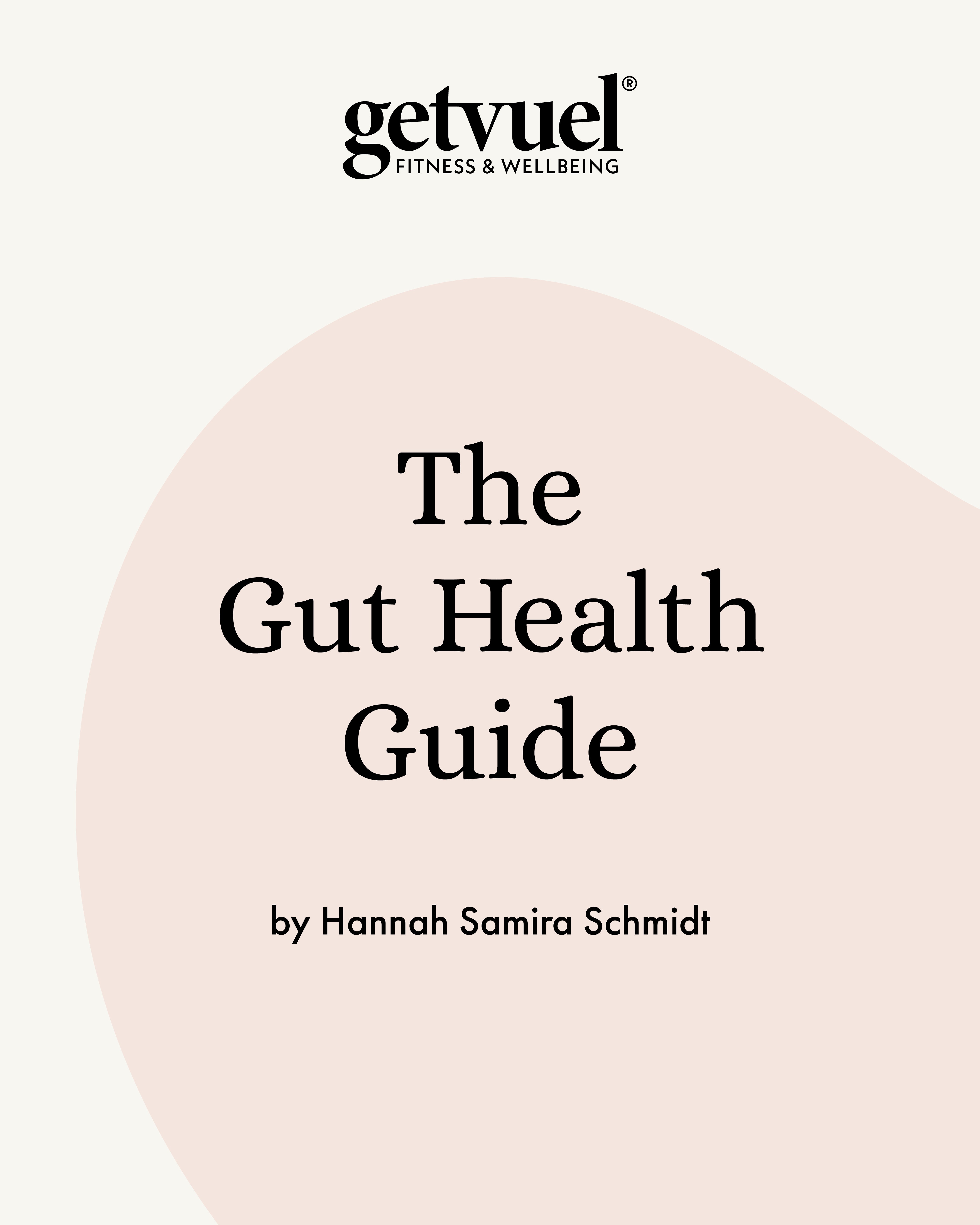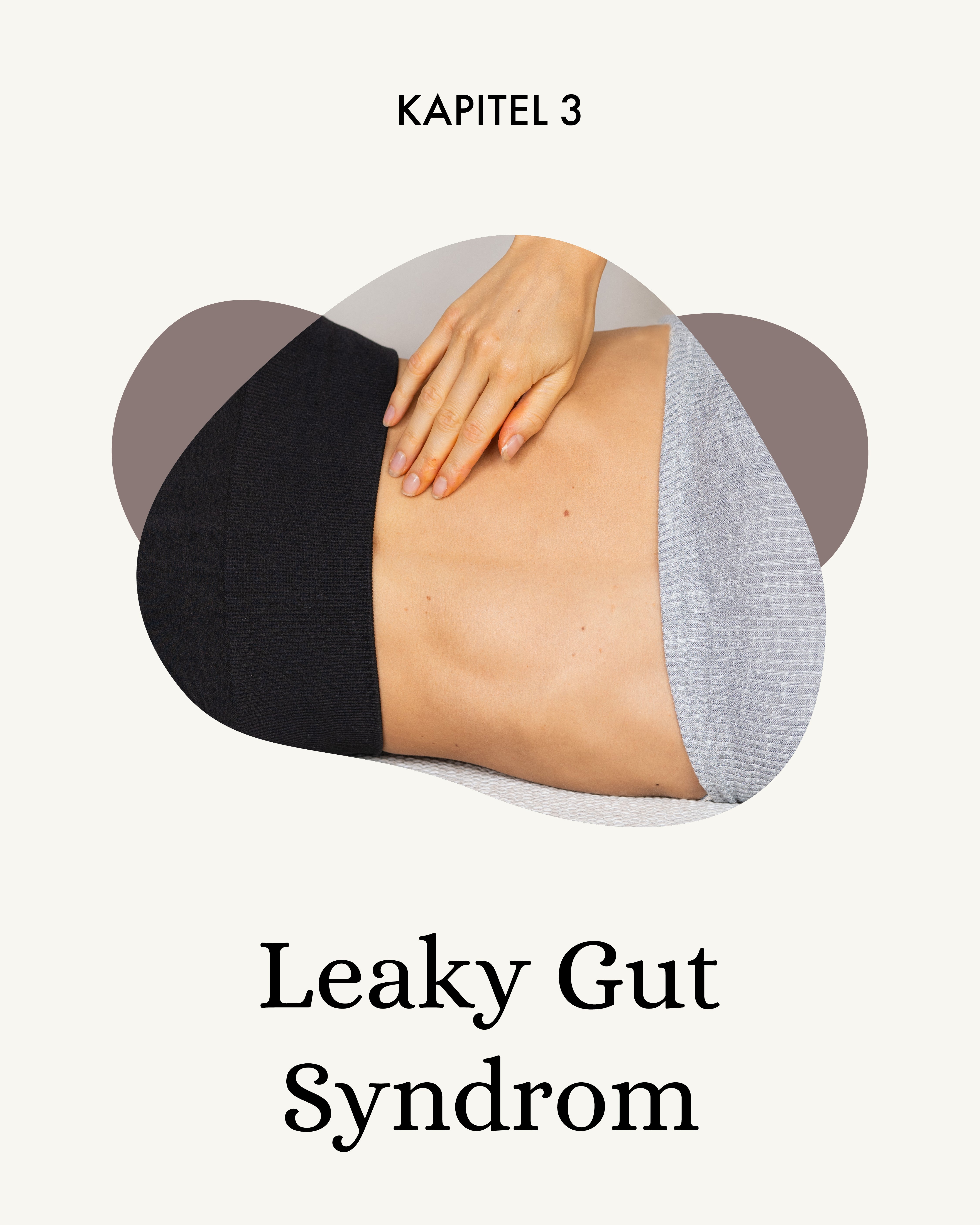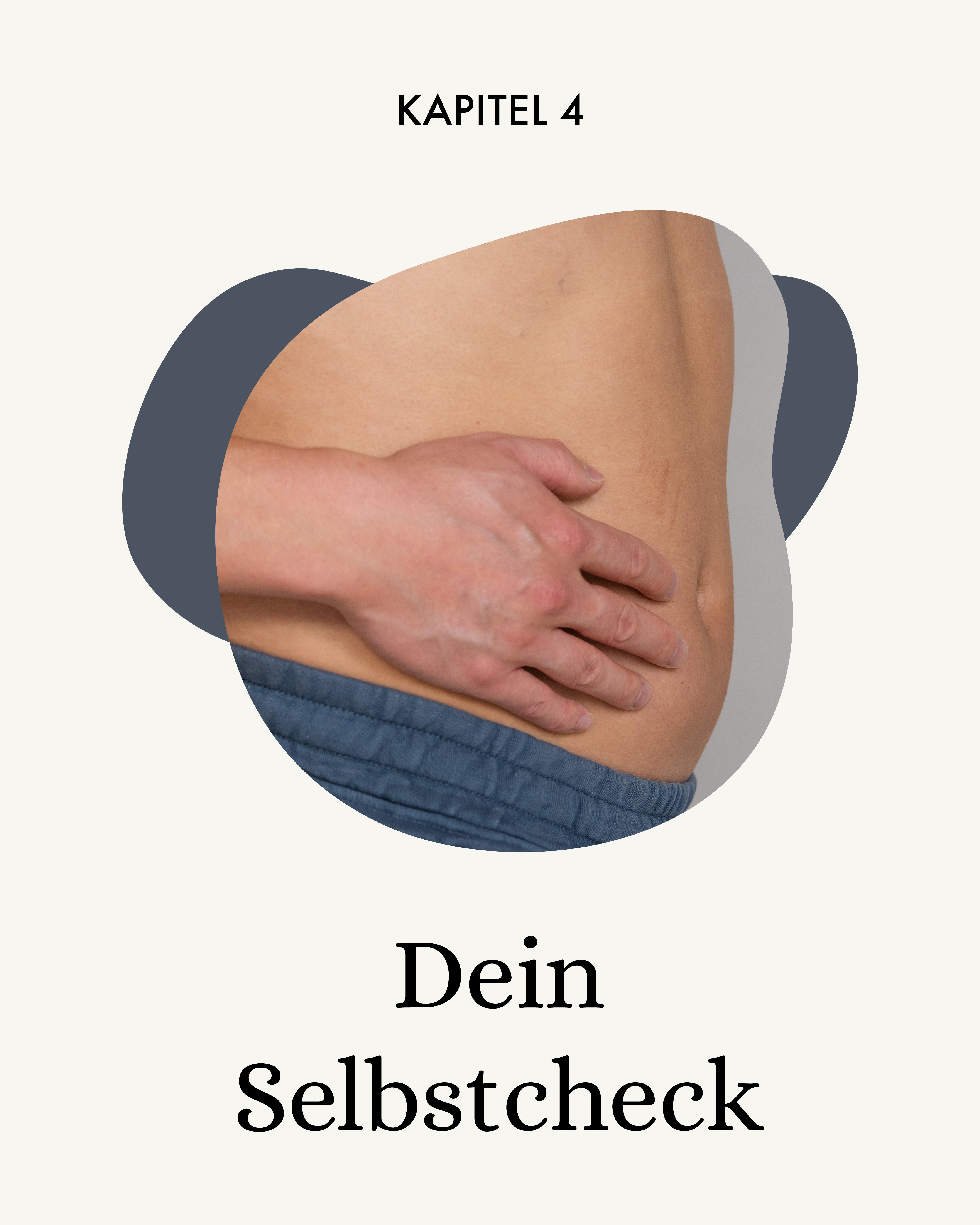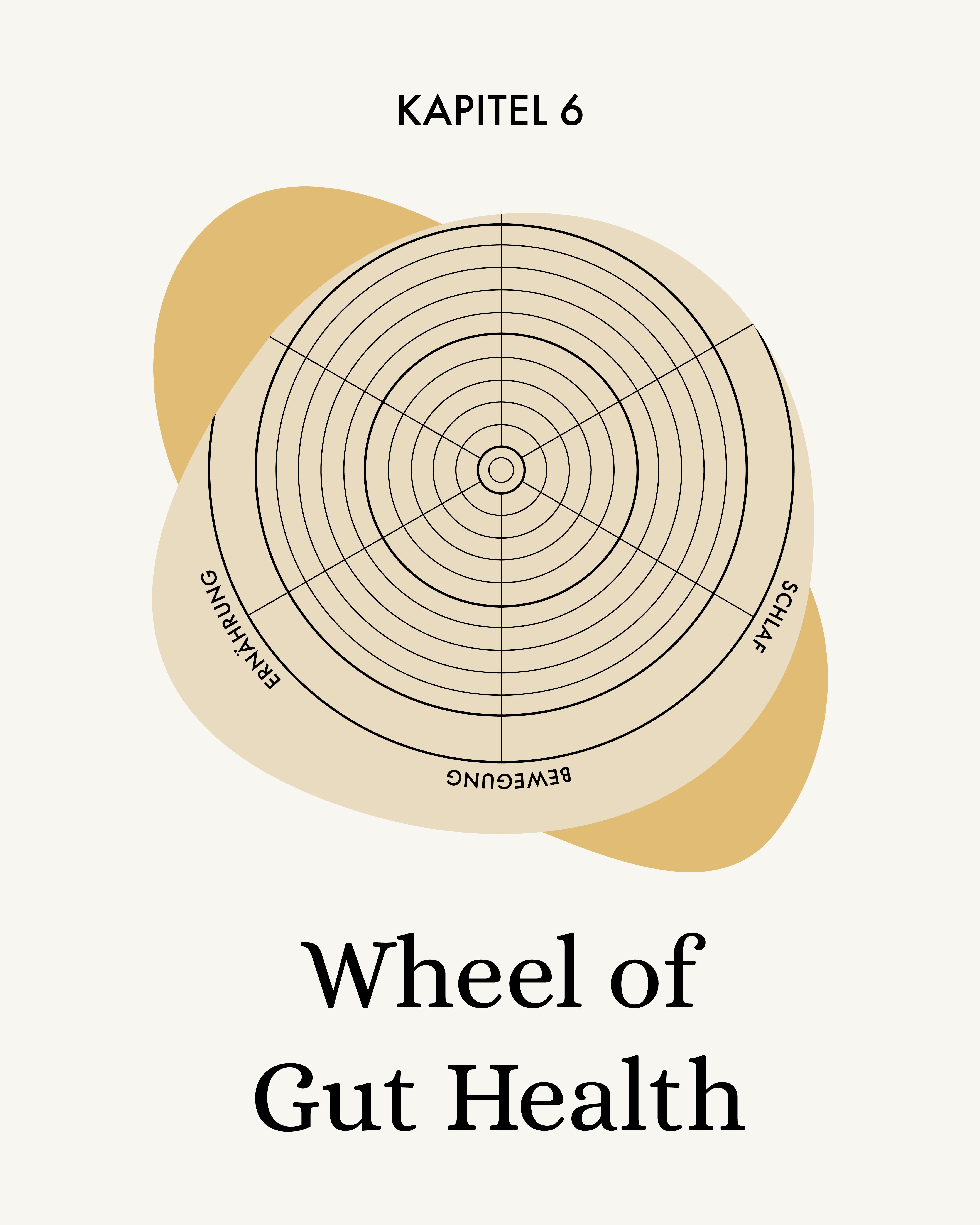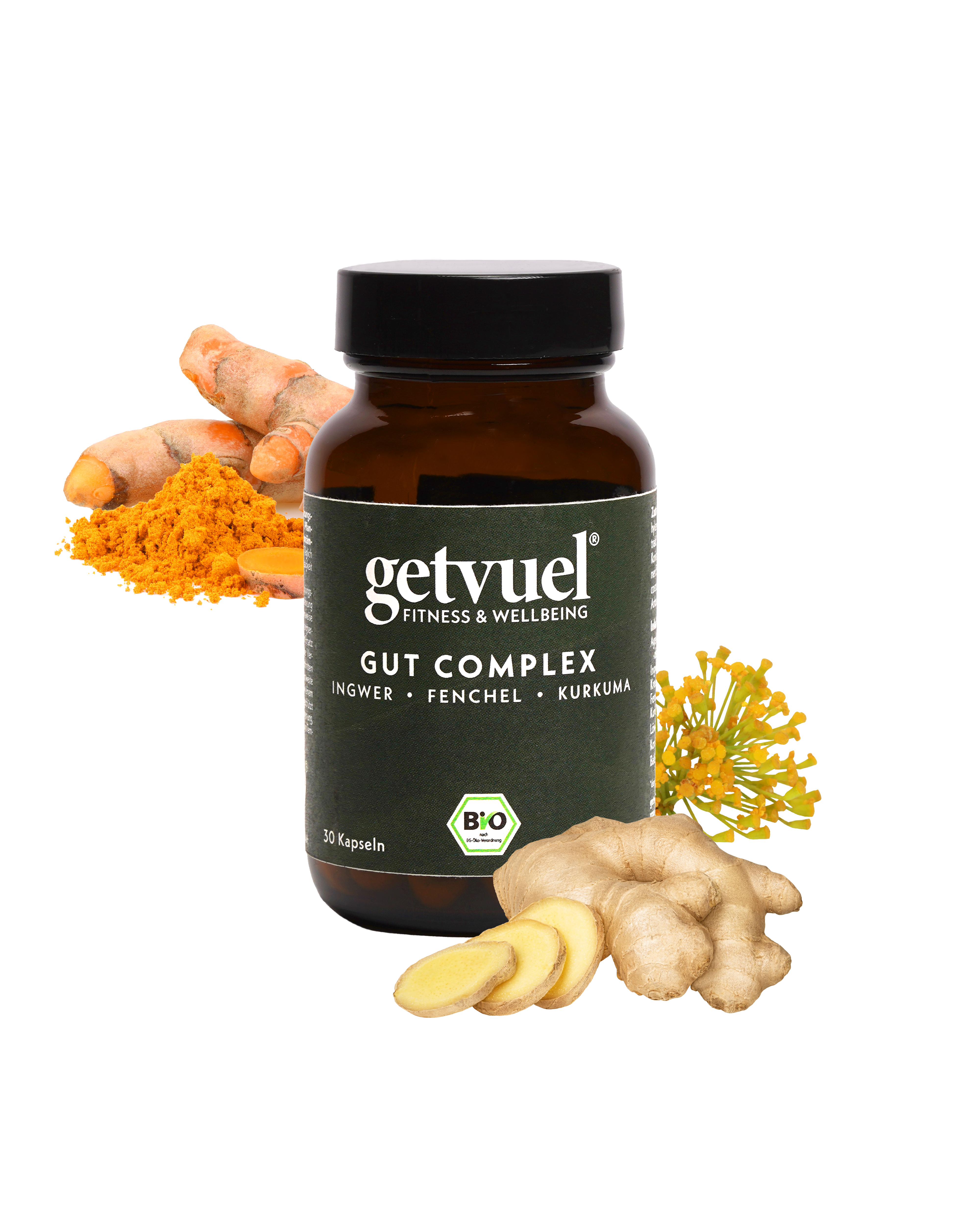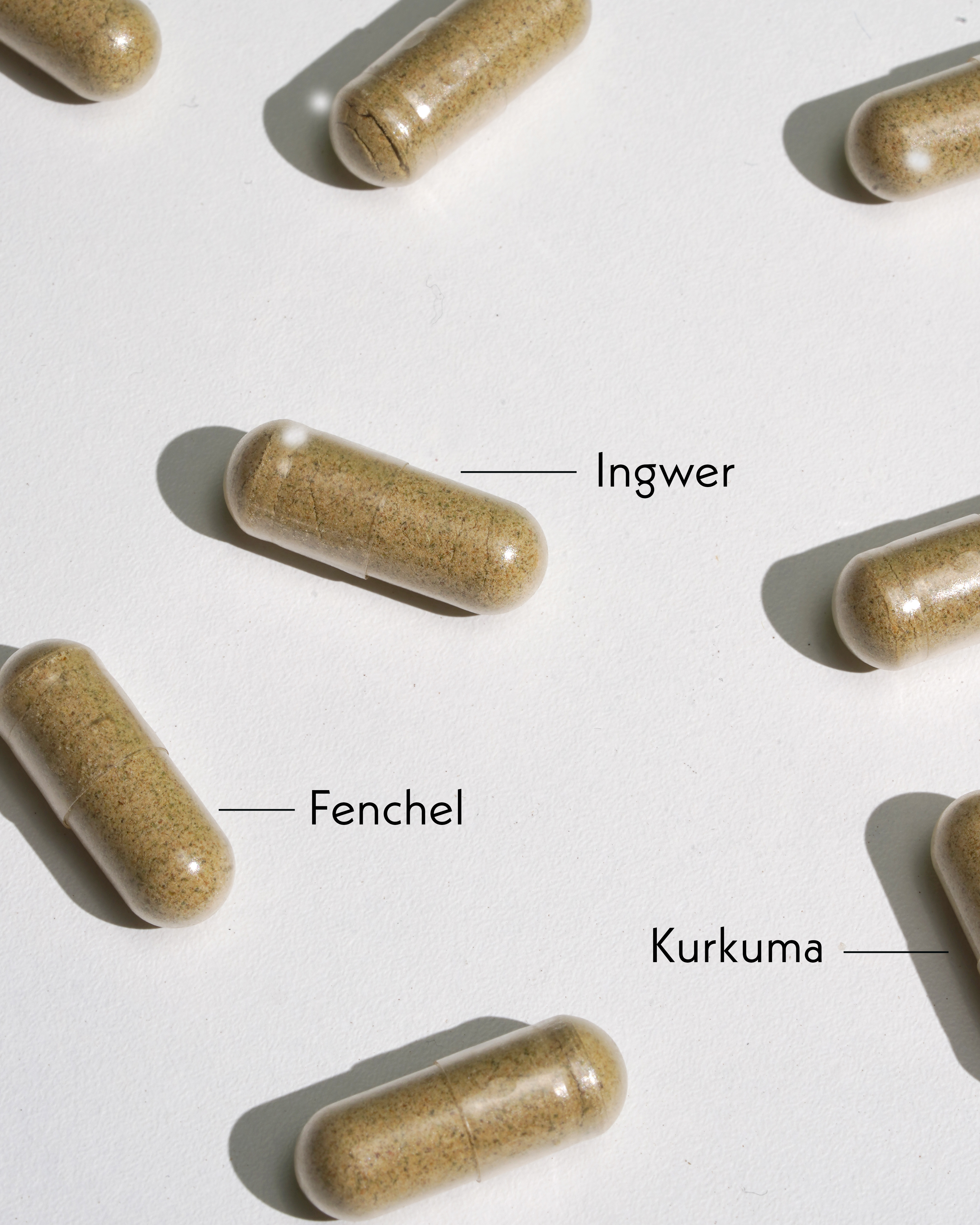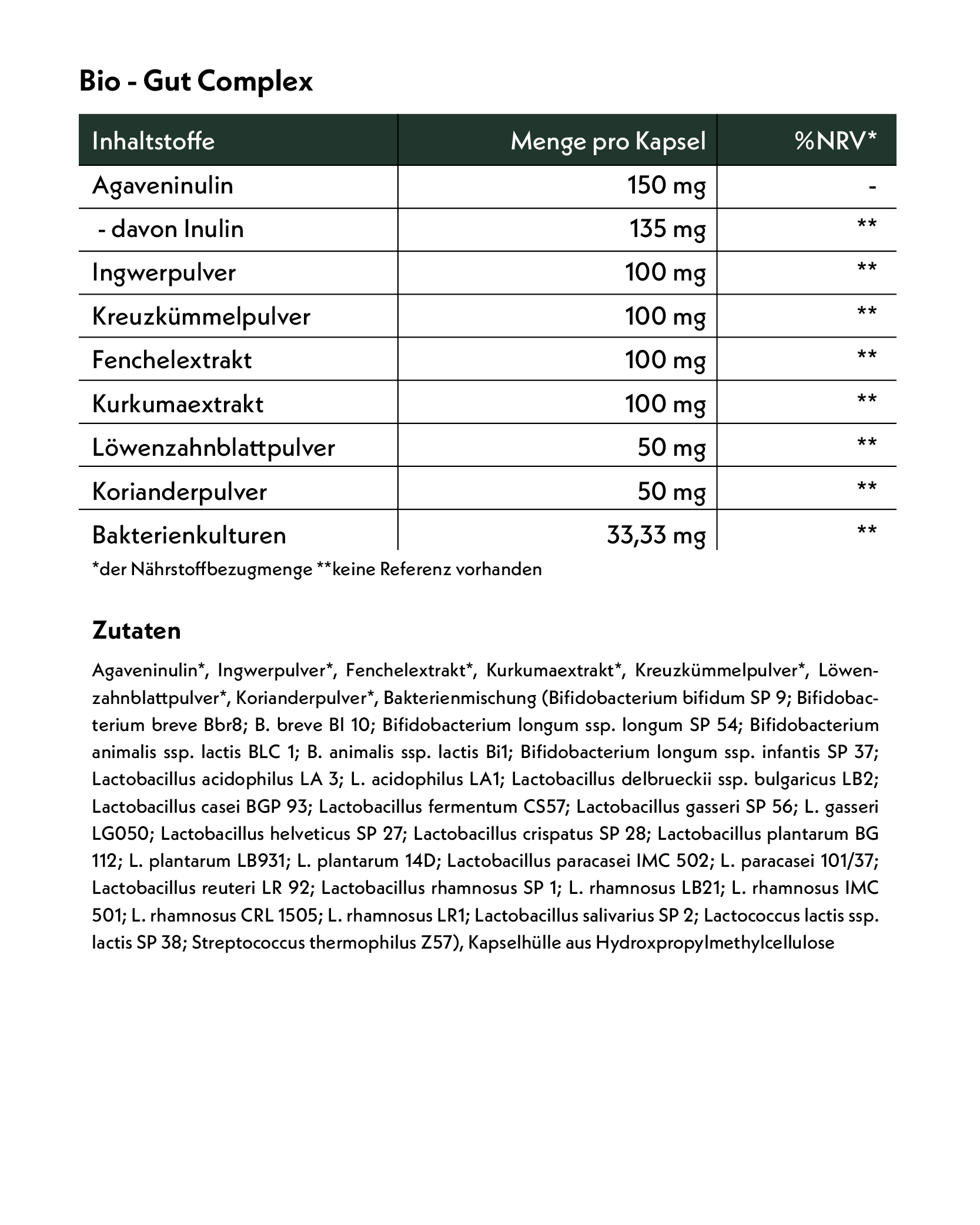Gut Health Guide:
In the Gut Health Guide, biomedical scientist Hannah Samira Schmidt informs you in 7 chapters about your gut and how you can improve your gut health.
The first chapter of the e-book will give you basic knowledge about your intestines so that you can better understand and apply the tips that are then shared in the following six chapters.
Chapter 2 is about nutrition. Here you will be shown which foods support your intestinal health and which you should reduce in your diet in order to do something good for your intestines.
Chapter 3 deals with stress management. It explains what stress actually is, what stressors there are, how they affect your gut and how you can best deal with them.
The following pages focus on the topic of mindset. You can find out what you should always keep in mind in Chapter 4.
Chapter 5 gives you tips about exercise and how you can integrate it into your everyday life.
The penultimate section of the e-book deals with your sleep. Here, too, you will get information about the body's regeneration time and how you can improve it.
Finally, Chapter 7 is intended to provide you with individual assistance in your everyday life, so that you can take a more differentiated look at your intestinal health. With an exercise that you can use again and again, you will be made aware of the various aspects that affect your intestinal health, so that you can actively adapt and implement the tips you have learned, tailored to you, again and again.
Gut Complex:
Our Gut Complex contains a formula with active ingredients from ginger, fennel and turmeric. All three of these components are known for their digestive effects.
In addition, the formula contains 11.5 billion bacteria from 30 million different strains, which support and strengthen the intestinal flora.
Agave inulin is not absorbed by the body and therefore functions as a fiber. However, it increases the growth and activity of certain benign bacteria in the colon, which has positive effects on the digestive system.
Ginger promotes the production of saliva and gastric juice and stimulates blood circulation. It has antibacterial, anti-inflammatory and expectorant effects. It also strengthens the immune system, stimulates digestion and relieves nausea.
Fennel has antispasmodic, expectorant, anti-inflammatory and antibacterial effects. It is said to be able to relieve flatulence and gastrointestinal complaints.
Turmeric helps against feelings of fullness, bloating and constipation. It is anti-inflammatory and has a prebiotic effect. Prebiotics are indigestible components, such as fiber, that promote the growth and activity of bacteria in the intestine.
Cumin regulates intestinal activity. It stimulates intestinal peristalsis and promotes digestion.
Dandelion leaf is considered helpful for flatulence and bloating. The bitter substances it contains can increase the release of stomach acid and bile, which aids digestion.
Coriander also promotes digestion and supports detoxification processes.
The bacterial mixture contained in the Gut Complex consists of 30 different strains of Lactobacillus, Bifidobacterium, Lactococcus and Streptococcus.
Lactobacillus bacteria support the function of the microbiome mucosa and make indigestible carbohydrates more accessible.
Bifidobacteria promote an acidic environment in the intestines because they neutralize alkaline metabolic products. The resulting drop in pH makes it more difficult for harmful bacteria and pathogens to survive in the intestines.
Lactococcus bacteria have a positive effect on symptoms such as diarrhea, irritable bowel syndrome and inflammatory bowel diseases.
Streptococcus bacteria help strengthen the immune system and support improved food intake. They can also relieve digestive problems and help against inflammatory bowel diseases.
The Gut Complex is organic certified, vegan and natural.
